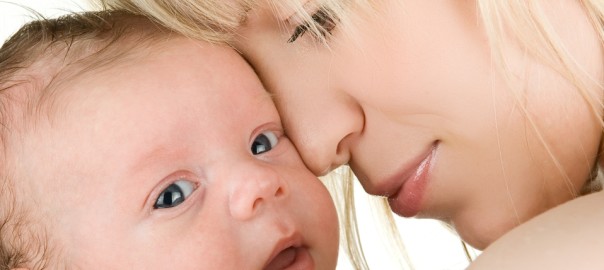Your five-year plan is almost right on track. You just got promoted at work, you’ve bought a house in Wexford and you’ve married the love of your life. The only thing missing is starting a family. And no matter how hard you try, your monthly pregnancy tests continue to be negative. Are ovarian cysts the cause of your fertility issues? Should you undergo ovarian cyst surgery? Have you been diagnosed with PCOS? If so, what should you do about it?
What Are Ovarian Cysts?
Ovarian cysts are fluid-filled sacs that develop in your ovaries. Ovaries produce eggs, as well as estrogen and progesterone. Since ovaries are a major part of the female reproductive system, cysts can sometimes interfere with a woman’s fertility.
Ovarian cysts are easily identified during an ultrasound exam, but removing them is not always necessary.
Your gynecologist may advise undergoing ovarian cyst surgery if a cyst:
- Is suspected to be cancerous
- Measures more than 2.5 inches in diameter
- Is solid rather than complex or partially filled with fluid
- Causes pain
There are alternatives to ovarian cyst surgery. Other treatment for ovarian cysts involves taking birth control pills to decrease the chances of new cysts forming during future menstrual cycles.
If an ovarian cyst doesn’t have any alarming symptoms, your physician may recommend follow-up pelvic ultrasounds at regular intervals to closely monitor your ovaries. Sometimes an ovarian cyst can disappear on its own.
What About PCOS?
Only two types of cysts can interfere with fertility. These include endometriomas – cysts caused by an abnormal growth of tissue lining your uterus – and cysts caused by Polycystic Ovarian Syndrome (PCOS), also called polycystic ovary disease. PCOS is an endocrine system disorder characterized by the growth of small, benign cysts in a woman’s ovaries.
PCOS is associated with irregular ovulation, which can lead to fertility problems in some women. To diagnose you with PCOS, your physician will look for the following three main signs:
- The presence of polycystic ovaries
- A history of irregular or absent menstrual periods
- An excess of androgen, which causes the development of some male sex characteristics such as hirsutism, a deepened voice and male pattern baldness
Other typical PCOS symptoms include:
- Acne
- Weight gain or obesity
- Infertility
- Insulin resistance
- Decreased breast size
Symptoms of PCOS can occur at puberty, but most women are diagnosed with PCOS in their 20s or 30s, sometimes after gaining a significant amount of weight.
Causes of PCOS are often initially due to the overproduction of luteinizing hormone, released by the pituitary gland. This causes an abundance of the male hormone androgen and a severe deficiency of follicle stimulating hormone, which stops the ovaries from releasing an egg. This egg slowly develops into a cyst.
Since studies have linked PCOS with increased risks of heart disease, as well as hypertension, Type 2 diabetes and endometrial cancer, it’s important to seek proper PCOS treatment once you get diagnosed.
What PCOS Treatment Should You Seek?
There are many treatments available if you’ve been diagnosed with PCOS. Based on your medical history, conventional PCOS treatment might include taking drugs such as:
- Oral contraceptives and progesterone to regulate your menstrual cycle
- Glucophage to treat insulin resistance
- Androgen blockers, such as spironolactone
If you’re trying to get pregnant, your physician may prescribe a medication that triggers ovulation, such as clomiphene.
You may also wish to change your eating habits, such as following an anti-inflammatory diet, avoiding the ingestion of raised cattle and dairy products (which may contain hormones) and consuming foods that contain isoflavones, such as soy products. Isoflavones have been shown to possibly contribute to the regulation of hormone imbalances.
If you’re looking for alternative PCOS treatment, you may wish to:
- Try traditional Chinese medicine by visiting an integrative medicine clinic and adding herbs to your diet under the guidance of an experienced professional
- Maintain a healthy weight and exercise regularly
- Undergo acupuncture sessions, which could help regularize your menstrual cycle or reduce the impact of PCOS. The efficacy and safety of acupuncture have been established by hundreds of randomized controlled trials.
Acupuncture as a PCOS Treatment
A fact sheet assembled by the British Acupuncture Council states that acupuncture may help symptoms of PCOS by specifically:
- Impacting beta-endorphin production, which may affect gonadotropin-releasing hormone secretion
- Regulating follicle stimulating hormone, luteinizing hormone and androgen levels
- Modulating the activity of the sympathetic nervous system and improving blood flow to the ovaries
- Regulating steroid hormone/peptide receptors
- Reducing and controlling the expressions of serum levels of testosterone and estradiol
- Controlling hyperglycemia by increasing insulin sensitivity and decreasing blood glucose and insulin levels
- Acting on brain areas known to reduce sensitivity to pain and stress
- Increasing the release of adenosine, which has antinociceptive properties
- Reducing inflammation by promoting release of vascular and immunomodulatory factors
Acupuncture Balanced Health
Acupuncture Balanced Health offers individualized treatment plans for many types of health issues, including fertility problems and PCOS. Our practicing physicians have decades of experience treating chronic medical conditions with an expertise that combines traditional Chinese medicine with a conventional Western approach. The use of acupuncture, especially, has been linked to achieving higher fertility rates. If you’ve been diagnosed with PCOS, don’t wait any longer and contact us to make an appointment.




